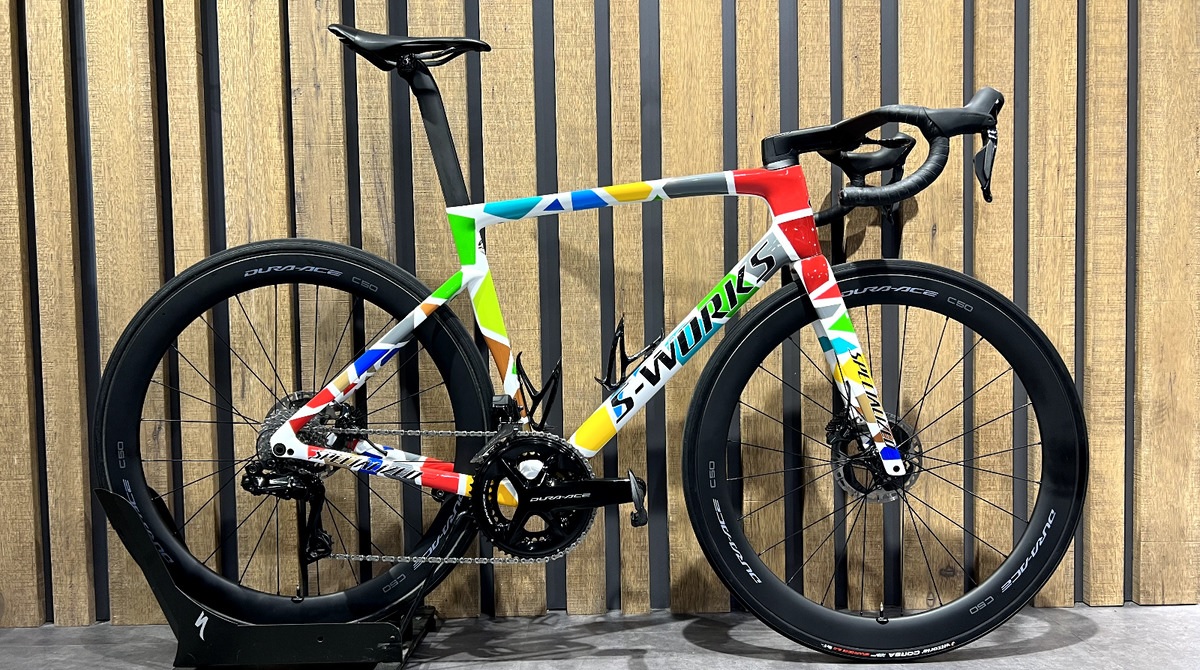
Granfondo LAIGUEGLIA 2026 Nutrition and Supplementation: A Complete Program of Integration and Diet – Tips, Secrets, and a Step-by-Step Guide
Granfondo Cycling: Explore the Ultimate Endurance Challenge in 2025 & 2026
GranFondo LAIGUEGLIA 2026: Date, Course, Elevation, Registration, and Contact Info
Granfondo Laigueglia 2026 Nutrition and Supplementation: The Complete Program for Your Success in the Saddle
The Granfondo Laigueglia is one of the classics on the amateur cycling calendar, known for its challenging routes and breathtaking landscapes of the Ligurian Riviera. To tackle it at your best, physical training alone isn't enough; an impeccable nutrition and supplementation strategy is equally fundamental. This comprehensive guide will provide you with a step-by-step program, practical tips, and the secrets to properly fuel your body before, during, and after the Granfondo Laigueglia, maximizing your performance and your cycling enjoyment.
The Foundations of Effective Cyclist Nutrition
Targeted sports nutrition is your body's fuel. To sustain intense training and the long distances of a Granfondo, a balanced intake of macronutrients (carbohydrates, proteins, fats) and micronutrients (vitamins and minerals) is essential.
Carbohydrates: Your primary energy source. Prefer complex carbohydrates (pasta, rice, whole grain bread, cereals, potatoes) for a gradual and sustained energy release, and use simple carbohydrates (fruits, honey, gels) for quick energy during activity.
Proteins: Crucial for muscle repair and building. Find them in lean meat, fish, eggs, legumes, and dairy products.
Fats: Provide long-term energy and are vital for the absorption of certain fat-soluble vitamins. Prioritize unsaturated fats found in olive oil, nuts, avocado, and fatty fish.
Vitamins and Minerals: Essential for countless bodily functions, including energy metabolism and immune system health. Ensure a wide variety of fresh fruits and vegetables.
Pre-Race Nutrition and Supplementation Program (The Decisive Week)
The week before the Granfondo is dedicated to optimizing energy reserves and ensuring perfect hydration.
From Day -7 to Day -3: Carbohydrate Loading and Progressive Hydration
Gradually begin to increase your carbohydrate intake.
Nutrition:
Increase the amount of complex carbohydrates by 10-15% at each main meal (e.g., slightly larger portions of pasta, rice, potatoes, bread).
Maintain an adequate intake of lean proteins.
Slightly reduce high-fiber foods (leafy greens, unprocessed legumes) and excessive fats (fried foods, heavy dressings) to minimize the risk of gastrointestinal discomfort.
Hydration:
Drink plenty of water throughout the day, aiming for 2.5-3 liters.
In hot weather or with heavy sweating, consider adding hypotonic or slightly isotonic drinks with electrolytes.
Day -2: Glycogen Reserve Maximization
This is the key moment to fully stock your energy "stores."
Nutrition:
Breakfast: Hearty and based on complex carbohydrates (e.g., oatmeal with fruit and honey, toast with jam).
Lunch and Dinner: Meals rich in easily digestible complex carbohydrates (e.g., plain rice or pasta with light tomato sauces, boiled potatoes). Continue to limit fiber, raw vegetables, and whole foods to minimize intestinal residue.
Snacks: Fruit (e.g., very ripe bananas), rice cakes, plain crackers, honey.
Hydration: Continue to drink abundantly to maintain cellular hydration.
Day -1 (Race Eve): Lightness and Confirmation
The goal is to consolidate energy reserves without weighing down the digestive system.
Nutrition:
Breakfast and Lunch: Similar to Day -2, but with slightly smaller portions to avoid feelings of fullness.
Dinner: A light and easily digestible meal, preferably consumed 3-4 hours before going to sleep. Examples: plain pasta or rice with a simple sauce (e.g., EVOO and Parmesan), or a small portion of boiled chicken breast or fish with potatoes. Absolutely avoid foods that you know are difficult for you to digest.
Hydration: Last efforts to achieve optimal hydration before bedtime.
Race Day: The Energy Strategy
This is the moment to put your tested nutritional strategy into practice.
Breakfast (3 hours before start):
Food: Must be rich in easily digestible complex carbohydrates, low in fat and fiber.
Examples: Porridge (with water or plant-based drink) with honey/jam, plain white toast with jam, rice cakes, plain boiled rice, ripe banana.
Quantity: Aim for 1.5-2 grams of carbohydrates per kg of your body weight.
Hydration: Drink approximately 500 ml of water or an isotonic drink.
Pre-start (Last hour):
Hydration: Sip 200-300 ml of water or isotonic drink for final hydration.
Supplementation:
Carbohydrates: An energy gel or a small, fast-absorbing bar (about 20-30g of carbohydrates) 15-30 minutes before the start, to give a final energy boost.
Caffeine (optional): If you're accustomed to it, a small dose (e.g., 100-150mg) can offer a slight stimulant. Always test it in training first.
During the Race: "On-The-Go" Fuel Management
The goal is to maintain constant energy and hydration levels, preventing drops. Regularity is key.
Hydration:
Drink in small sips, every 10-15 minutes, without waiting to feel thirsty.
Alternate water with isotonic drinks (containing carbohydrates and electrolytes) in your bottles.
Aim for a consumption of 500-1000 ml of fluids per hour, adjusting based on intensity, temperature, and sweat rate.
Carbohydrates:
Consume 60-90 grams of carbohydrates per hour of activity. Regularity is fundamental; distribute intake every 20-30 minutes.
Energy gels: Practical and quick to assimilate. Always take them with water to facilitate absorption.
Energy bars: Offer a more solid energy source, but make sure they are easy to chew and digest on the move.
Fruit: Ripe bananas or dates can be excellent natural, potassium-rich alternatives.
Vary your sources: Don't rely on just one type of product; alternating helps prevent nausea and palate fatigue.
Electrolytes: If isotonic drinks aren't enough (e.g., excessive sweating, cramps), supplement with mineral salt tablets dissolved in water.
Post-Race Recovery: The Crucial Phase for Tomorrow
The recovery process begins immediately after you cross the finish line. The goal is to replenish depleted glycogen stores and initiate the repair of muscle tissue.
Within 30-60 minutes (The "Anabolic Window"):
Carbohydrates and Proteins: Consume a mix of fast-absorbing carbohydrates and proteins (3:1 or 4:1 carbohydrate/protein ratio).
Examples: Recovery shake (with whey protein and maltodextrins), Greek yogurt with fruit and honey, honey/jam sandwich, protein-energy bar.
Hydration: Continue drinking water and electrolyte-rich beverages.
In the Following 2-4 Hours:
Complete and balanced meal: Consume a meal that includes complex carbohydrates, lean proteins, and abundant fresh vegetables.
Examples: Pasta or rice with a light sauce and a protein source (chicken breast, baked fish), or potatoes with eggs/legumes and mixed vegetables.
Hydration: Continue hydrating until your urine is clear.
Additional Tips and Secrets for a Winning Nutritional Strategy
Test everything in training: Never introduce new foods or supplements on race day. Every product must be tested and proven during long rides.
Listen to your body: Every cyclist is unique. Learn to interpret your body's signals of hunger, thirst, or digestive discomfort.
Plan your aid stations: Study the location of aid stations along the Granfondo Laigueglia route and decide in advance what you'll take from them and what you'll carry with you.
Vary your sources: Don't rely on just one type of gel or bar. Variety helps prevent nausea and palate fatigue, as well as digestive issues.
Caffeine management: If you use it, be aware of potential side effects (nervousness, gastrointestinal issues) if consumed in excess or without prior habituation.
Morning hydration: In the hours before the start, sip liquids gradually to avoid feeling too full or needing frequent bathroom breaks.
Salt intake: If you sweat a lot (visible white stains on your jersey), you might need additional sodium supplementation.
Specific Supplements (To Be Evaluated with a Professional)
In addition to a well-structured diet, some supplements can provide extra support, but always after consulting with a doctor or sports nutritionist.
Maltodextrins/Fructose: Primary carbohydrate components in energy drinks and gels for quick carbohydrate delivery.
BCAAs (Branched-Chain Amino Acids): Can help reduce muscle catabolism and perceived fatigue, useful after prolonged efforts.
Beta-Alanine: May help buffer lactic acid, delaying muscle fatigue during intense and repeated efforts.
Mineral Salts: Fundamental for preventing cramps and electrolyte imbalances, especially potassium, magnesium, calcium, and sodium.
Conclusions
Nutrition and supplementation are fundamental pillars for a successful Granfondo. A carefully planned and rigorously tested strategy for the Granfondo Laigueglia, intelligent nutrient management during the race, and effective recovery will allow you not only to complete the course but to do so to the best of your abilities, enjoying every kilometer of this iconic route. Prepare your body with the same care and dedication you prepare your bike: success and the joy of cycling will be your reward!
